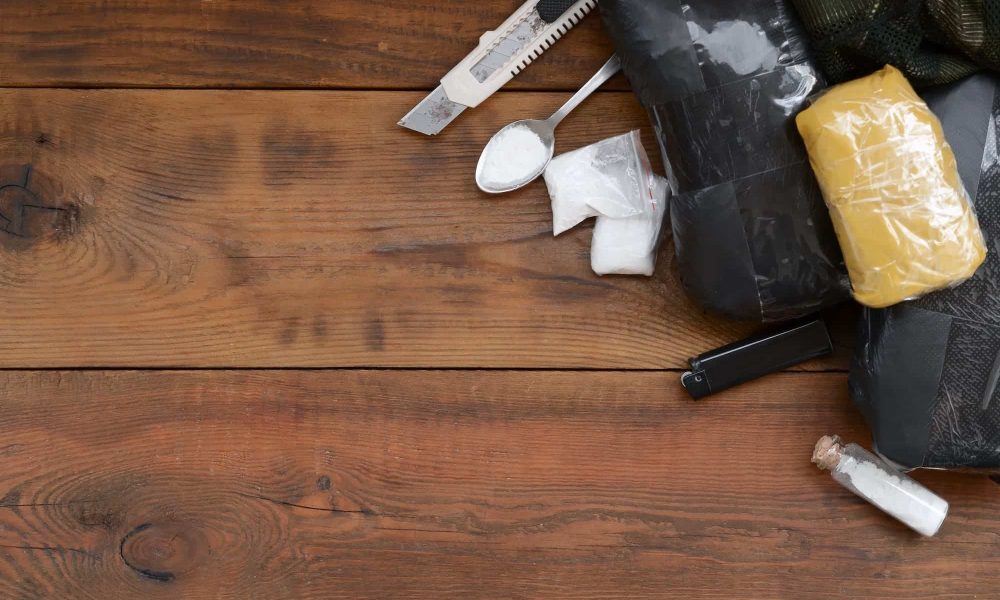
Overview
This page contains detailed information about charges of Possession of Drugs for Trafficking. Included are defences, punishments, what's needed to be found guilty, how we can defend you, and actions you can take. It was written and prepared by experienced criminal defence lawyers in Toronto but does not consist of legal advice.
Offence: Possession of drugs for the purpose of trafficking contrary to section 5(3) of the Controlled Drugs and Substances Act (CDSA)
To be found guilty of Drug Trafficking
The Crown Attorney has to prove ALL of these things BEYOND A REASONABLE DOUBT:
- the substance/drug in question is included in Schedule I, II, III, IV or V of the CDSA;
- the accused had knowledge of the nature of the substance/drug;
- the accused was in possession of the substance/drug; and
- the possession of the substance/drug was for the purpose of trafficking.
Other Forms of Liability
- Joint possession
How we can defend you
Drug offences are very technical to prove and defend. To maximize your chance of success, it is important that you have an experienced lawyer with strong cross-examination skills and who is up-to-date on the most recent court cases. Norm and Marcus have successfully defended hundreds of drug cases.
Every Defence.
Charged with a Criminal Offence? Get Every Defence.
Do not plead guilty to drug trafficking charges without discussing your case with a lawyer.
Many drug offences have mandatory minimum sentences and a conviction will often result in a lengthy jail sentence. Being found guilty may result in negative employment, immigration and personal consequences to you and your family for years to come.
Every Defence. Norm and Marcus will ensure that all of your rights are protected. You are presumed innocent. We will fight for the positive result you need to move on with your life.
To speak with Norm or Marcus, call (416) 855-7799 or email us at [email protected]. We accept calls 24 hours a day, 7 days a week. Confidentiality guaranteed. Free consultations. Meeting by appointment only.

Defences for drug trafficking charges:
- Identity of accused not proven
- Nature of the substance/drug not proven
- Knowledge of the nature of the substance/drug not proven
- Mistake as to nature of the substance/drug
- Possession of the substance/drug not proven
- Innocent possession/Possession for lawful purposes
- For the purpose of trafficking in the substance/drug in the future not proven
- Abandonment of purpose
- Licence or prescription
- Duress
- Breach of right to be free from unreasonable search and seizure (Charter)
- Breach of right to be free from arbitrary detention (Charter)
- Breach of rights to counsel (Charter)
- Breach of right to a trial within a reasonable time (Charter)
- Excessive use of force by police (Charter)
Abuse of process (Charter)
Punishment IF found guilty
Where the substance/drug in question is included in Schedule I or II:
- The maximum sentence is life in prison;
- This offence is NOT eligible for a conditional sentence (house arrest).
Where the substance/drug in question is included in Schedule I or II,
AND
(A) the person committed the offence for the benefit of, at the direction of or in association with a criminal organization, as defined in subsection 467.1(1) of the Criminal Code, or
(B) the person used or threatened to use violence in committing the offence, or
(C) the person carried, used or threatened to use a weapon in committing the offence:
- The maximum sentence is life in prison;
- The mandatory minimum sentence is one year in prison;
- This offence is NOT eligible for a conditional sentence (house arrest).
Where the substance in question is included in Schedule I or II,
AND
(A) the person committed the offence in or near a school, on or near school grounds or in or near any other public place usually frequented by persons under the age of eighteen years,
(B) the person committed the offence in a prison, as defined in section 2 of the Criminal Code, or on its grounds, or
(C) the person used the services of a person under the age of eighteen years, or involved such a person, in committing the offence:
- The maximum sentence is life in prison;
- The mandatory minimum sentence is two years in prison;
- This offence is NOT eligible for a conditional sentence (house arrest).
Where the substance/drug in question is included in Schedule III or V,
- IF the Crown Attorney elects to proceed by indictment: The maximum sentence is ten years in prison;
- IF the Crown Attorney elects to proceed by summary conviction: The maximum sentence is eighteen months in prison.
Where the substance/drug in question is included in Schedule IV
- IF the Crown Attorney elects to proceed by indictment: The maximum sentence is three years in prison;
- IF the Crown Attorney elects to proceed by summary conviction: The maximum sentence is one year in prison.
Recent Successes
R. v. C.C – Identification of offender not proven
R. v. C.M – Identification of offender not proven
R. v. M.N. – Identification of offender not proven
R. v. M.R – Identification of offender not proven, Charges Dismissed
R. v G.B. – Reasonable doubt re: self-defence
R. v. D.T. – Reasonable doubt re: self-defence
R v NORMAN, 2021 ONCA 321 – Duress defence against drug trafficking charges
Every Accused may advance the defence that they committed the offence alleged under Duress. This means that the offence was committed involuntarily rather than intentionally. In this case, the Accused was charged with Trafficking and Breach of Probation for smuggling drugs into the Central East Correctional Centre in Lindsay, Ontario. At trial, the Accused argued that he was forced into committing the offence because of threats made against him and his brother by “Big Newf”. The Accused was a seasoned inmate while it was his brother’s first time in custody. The trial judge found that there was an “air of reality to the defence of duress and that the Crown had failed to prove beyond a reasonable doubt that the defence did not apply”. The Accused was acquitted of all charges.
R. v. A.F — Drug Trafficking Charges Withdrawn
Our client was charged with possession of cocaine for the purpose of trafficking. Police executed a search warrant at our client’s residence and seized a large amount of cocaine as well as cutting agents, scales, baggies and cash. We filed a Charter application alleging breaches of our client’s rights to counsel, his right to be free from unreasonable search and seizure and his right to be free from arbitrary detention. After reviewing our Charter application, the Crown Attorney agreed to withdraw this charge. Note: This is a case where the police obtained a search warrant
R. v. T.B
Note: This is a case where the police did not obtain a search warrant
Our client was charged with possession of cocaine for the purpose of trafficking and possession of explosives and a restricted firearm with ammunition.
Police received a complaint from a man who alleged that he had just been in a fight with our client in front of our client’s house and that our client said he was going inside to get a gun. Because the complaint involved a firearm, more than a dozen police officers immediately attended at our client’s house. The police claimed that when they arrived, they saw the lights of a vehicle in the driveway flash on and off and saw a man run into a wooded area. A short time later, officers found our client in the wooded area and arrested him. They then immediately searched our client’s home and the car in the driveway. In the house, they found a large quantity of cocaine and other items consistent with drug trafficking. In the car, they found a firearm that was stored with ammunition and other explosives.
Upon a review of the disclosure, we discovered that several of the police officers noted inconsistent explanations for why they decided to search the house and the car immediately rather than applying for a search warrant. Furthermore, we could prove that the explanations given by several of the officers were untrue. We believed that the police knew they did not have a lawful justification for searching the home and that a search warrant would not have been granted had they applied for one.
After a number of pretrials with the Crown and a judge, the Crown agreed to withdraw these charges.
R. v. A.F
Note: This is a case where the police obtained a search warrant
Our client was charged with possession of cocaine for the purpose of trafficking.
Police executed a search warrant at our client’s residence and seized a large amount of cocaine as well as cutting agents, scales, baggies and cash.
We filed a Charter application alleging breaches of our client’s rights to counsel, his right to be free from unreasonable search and seizure and his right to be free from arbitrary detention. After reviewing our Charter application, the Crown Attorney agreed to withdraw this charge.
